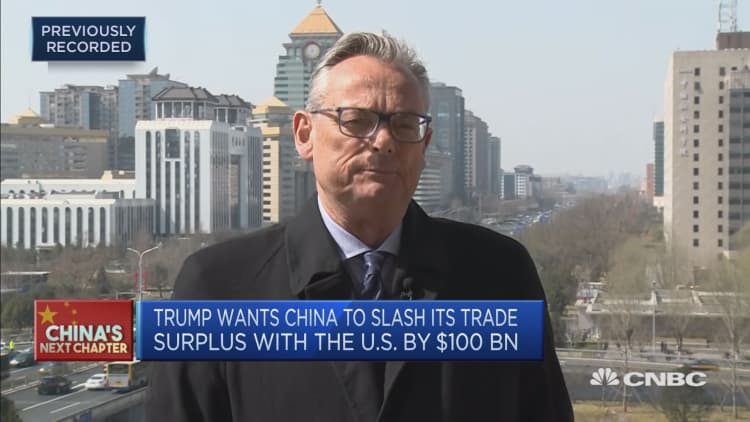The U.S., Japan, Australia and India are working to preserve the balance of power in the Asia Pacific. But that could aggravate the world's second-largest economy, potentially triggering a greater Chinese military presence around the region.
That result became more likely after officials from the four democracies held discussions on upholding freedom of navigation, terrorism, connectivity and maritime security in Asia on the sidelines of a November ASEAN Summit.
The meeting, dubbed the "Australia-India-Japan-United States consultations on the Indo-Pacific," was widely viewed as a resurgence of the Quadrilateral Security Dialogue — or "Quad" — an
informal security forum consisting of the same four countries that launched in 2007 but eventually fell apart.
The revived Quad comes as President Donald Trump's administration centers its Asia strategy around a "free and open Indo-Pacific," a term used as a replacement for the more widely used "Asia Pacific" label.
An anti-China alliance?
The consultations focused on "issues of mutual concern, whether they be security, economic or political," Alex Wong, deputy assistant secretary at the U.S. State Department's East Asian and Pacific Affairs bureau, said last week in response to a question from CNBC.
Beijing is the biggest shared worry among the four powers, strategists said.

"Though China is cautiously not named in any of the statements, the revival of the group is undoubtedly motivated by increasing nervousness at China's assertiveness and ambitions in the region," researchers at Singapore-based Nanyang Technological University said in a note.
From building man-made islands in the contested South China Sea to increasing economic leverage over developing countries with the Belt and Road program, China's behavior has worried America's Asia Pacific allies. Beijing has also been criticized for using education, spying, and political donations to influence local decision-making in countries such as New Zealand.
When asked whether the four-country dialogue was a means to hedge against China, Wong said unfounded fears were being appended to a single, working-level meeting: "The strange types of intentions being ascribed to [this meeting], I think, may not be grounded in truth."
He said dialogue among the four nations would continue, but warned that he "can't predict where it's going to go."
For now, the Quad is widely expected to remain a loose and flexible partnership based on solidarity rather than an institutionalized military alliance.
Maritime security is seen as the group's core issue, but infrastructure could play a major role too.
"Australia is likely to back proposals to insert an infrastructure investment component into the Quad so it can provide an alternative — or supplement — to China's sprawling 65-nation Belt and Road Initiative," intelligence firm Stratfor said in a February note.
"The four countries discussed the proposal at the November 2017 meeting, and Australia and Japan subsequently have downplayed any potential military aspects to the Quad, perhaps out of worries over Beijing," it continued.
China's response
So far, Chinese President Xi Jinping's government has expressed reservations about the Quad, with a foreign ministry spokesman saying that regional cooperation should neither be "politicized" nor "exclusionary."

"Despite frequent disavowals, the Quad redux is primarily about China," according to Chengxin Pan, associate professor at Deakin University. "Rightly or wrongly, many Chinese are likely to interpret the Quad efforts and U.S. freedom of navigation operations in terms of new gunboat diplomacy," he said in a recent report.
"Gunboat diplomacy" is when military actions or threats are used to support a country's foreign policy.
That could push Beijing to further strengthen its military capabilities, Pan warned: "One can expect more 'bad things' from China should the Quad operate in full swing."

